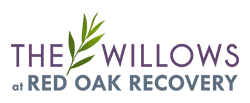Just like the chicken and the egg, the conversation about whether anxiety or substance use comes first is ongoing. No one can say whether anxiety leads to substance use or whether substance use furthers a person’s anxiety, but the two go hand-in-hand. Growing evidence supports the link between the two and shows that they commonly co-occur, with a range of experiences and depths depending on the person and the situation. If you need treatment for anxiety and substance abuse, please contact the Willows at Red Oak today at 855.773.0614.
What Is Anxiety?
Anxiety refers to feelings of nervousness, stress, or fear and is a natural part of being human. But when these feelings become uncontrollable and persistent, interfering with everyday life, there may be a bigger mental health issue at work. Anxiety disorders involve worry that is more than temporary and that can worsen over time. There are several categories of anxiety, including:
- Generalized anxiety disorder
- Panic disorders
- Phobias
- Social anxiety disorder
- Obsessive-compulsive disorder
- Agoraphobia
- Post-traumatic stress disorder
These conditions can be incredibly debilitating, so if you suspect you have one or more of these anxiety disorders, it may be time to contact a mental health professional.
Symptoms of Anxiety
While each type of anxiety is unique, they also share some common symptoms. People with anxiety often experience symptoms such as:
- Upset stomach or nausea
- Sweating, tremors, and twitching
- Headaches, fatigue, and insomnia
- Restlessness or irritability
- Feelings of apprehension or dread
- Hypervigilance and continually fearing the worse
- Pounding or racing heart or shortness of breath.
As you can see, some of these symptoms are also the same ones that those with substance use disorders might experience, so it isn’t easy to differentiate the two at times. While people may turn to alcohol to self-medicate their anxiety, the adverse effects quickly outweigh the perceived short-term relief.
How Is Anxiety Linked to Substance Abuse?
The most commonly associated anxiety disorders with substance abuse are generalized anxiety disorder, panic disorder, and post-traumatic stress disorder. And it’s not just that they are associated; one often causes the other. That’s because individuals who develop an anxiety disorder are at increased risk of substance use disorder and the other way around. Genetics and environmental factors both play a role in this connection.
Furthermore, research shows that having both disorders is becoming more common than only having an anxiety disorder. People undergoing treatment for co-occurring disorders or dual diagnoses often give mixed reports, leading to the other. Some say they used to lessen their anxiety, while others say they developed anxiety because they used substances. Regardless, getting treatment for both at the same time is the most effective way to succeed in recovery.
How Does Dual Diagnosis Treatment Help?
When a person experiences more than one mental health disorder, regardless of the type, they have a dual diagnosis or co-occurring disorder. It doesn’t matter which condition developed first; leaving them without treatment could worsen one or both disorders. Therefore, using an integrated approach that targets both issues allows them to be addressed simultaneously so that both are appropriately handled. Therapy and treatment strategies can combine for a more comprehensive and personalized treatment plan. Additionally, treating both allows for the development and practice of healthy coping skills, a deeper understanding of triggers, and the ability to see the connection between the two disorders.
Treatment Begins at The Willows at Red Oak
If you or someone you love is struggling with anxiety and substance abuse and needs dual diagnosis treatment, the Willows at Red Oak wants to help. We are a clinician-run, so everyone who works here is an expert in addiction treatment. As a women’s only center, the Willows at Red Oak provides targeted help through one of our many therapy strategies. Visit our website or call us at 855.773.0614 for more information.


